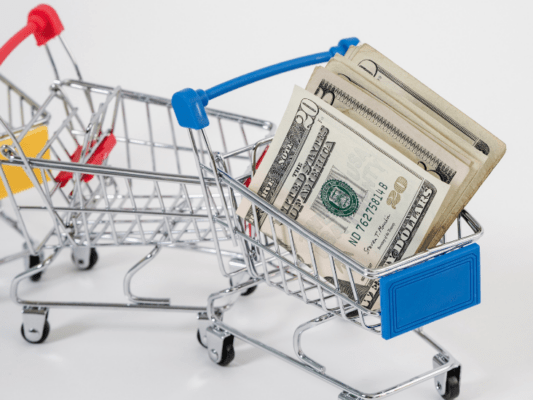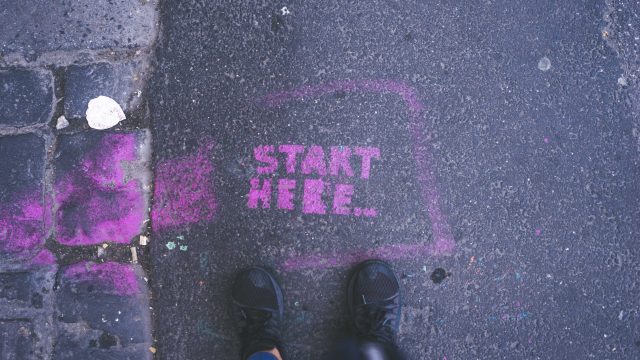So, you’ve heard about this amazing opportunity called Amazon FBA (Fulfillment by Amazon) and you’re ready to jump on the bandwagon. Congratulations! You’re about to embark on an exciting journey that could potentially change your life. But before you dive headfirst into the world of e-commerce, there’s one question that’s probably been nagging at the back of your mind: How much money do you actually need to start an Amazon FBA business?

Luckily, you’ve come to the right place. In this article, we’re going to break it down for you and give you a clear understanding of the financial aspects involved in launching your own FBA venture. We’ll provide you with expert insights and practical advice to help you make informed decisions.
Starting an Amazon FBA business requires some upfront investment, but the good news is that it’s relatively affordable compared to traditional brick-and-mortar businesses. The exact amount of money you’ll need will depend on various factors, such as the products you choose to sell, your marketing strategy, and your overall business goals.
In this helpful article compiled by the online arbitrage experts at SourceMogul we’ll discuss the essential costs involved, including product sourcing, inventory, Amazon fees, marketing expenses, and more. We’ll also explore different budgeting options and strategies to help you optimize your spending and maximize your profits.
So, if you’re ready to take the plunge into the world of Amazon FBA, grab a cup of coffee, sit back, and let’s dive into the nitty-gritty of how much money you’ll need to kickstart your own successful FBA business.
What is Amazon FBA?
Before we delve into the financial aspects of starting an Amazon FBA business, let’s first understand what exactly Amazon FBA is and why it has become such a popular choice for people that want to start their own online arbitrage business.
Amazon FBA, or Fulfillment by Amazon, is a program offered by the e-commerce giant that allows sellers to store their products in Amazon’s fulfillment centers. Once a customer places an order, Amazon takes care of the entire fulfillment process, including picking, packing, shipping, and even customer service.
This means that as an FBA seller, you don’t have to worry about the logistics and operational aspects of running an e-commerce business. Amazon handles all the heavy lifting, allowing you to focus on other crucial aspects like product selection, marketing, and growing your brand.
The benefits of using Amazon FBA are numerous. Firstly, it provides access to Amazon’s vast customer base, which can significantly boost your sales potential. Secondly, Amazon’s reputation for fast and reliable shipping can enhance customer trust and satisfaction. Additionally, FBA sellers are eligible for Amazon Prime and other promotional programs, giving them a competitive edge in the marketplace.
Now that we have a basic understanding of Amazon FBA, let’s move on to the financial considerations involved in starting your own FBA business.
How much does Amazon FBA cost?
When starting an Amazon FBA business, it’s crucial to understand the various costs associated with the program. While FBA offers convenience and efficiency, it does come with certain fees that you need to factor into your budget.
One of the primary expenses you’ll encounter when starting an Amazon FBA business is product sourcing and inventory costs. The amount of money you’ll need for this will depend on the type of products you choose to sell and the quantity you plan to stock.
There are various sourcing options available, including wholesale, private label, and retail arbitrage. Each method has its own cost implications, and it’s essential to carefully evaluate which approach aligns with your budget and business goals.
Wholesale sourcing – This involves purchasing products in bulk directly from manufacturers or authorized distributors. This typically requires a higher upfront investment but can result in lower per-unit costs.
Private label sourcing – For this you will need to create your own brand and then have products manufactured under that brand. This approach often requires a higher initial investment for product development and branding.
Retail/online arbitrage – Out of the three options this is probably the easiest option for new sellers wishing to start an Amazon FBA business. It involves finding discounted products from retail stores or online and reselling them on Amazon for a profit. This method can be a more affordable option to start with, as it requires less upfront investment. However, it may involve more time and effort in finding profitable deals. You can read more tips about starting a retail arbitrage business in 2023 here.
In addition to product sourcing costs, there are also some additional fees and expenses you need to be aware of that will occur when running your Amazon FBA business. Here we run through some of the main ones you need to consider.
1. Amazon Professional seller account: Although you don’t need to have a professional seller account to use the FBA service offered by Amazon as you can still use FBA on an individual seller account, it’s probably beneficial to get one anyway. For a start, you’re not restricted on the amount of items you can sell and you also get access to a range of other bonus features you don’t get with an individual seller account which can really help your business grow. The cost for an Amazon professional seller account is currently $39.99 per month and you do not pay any additional ‘per item’ fees on top.
You can sign up for an Amazon seller account here.
2. Fulfillment fees: These fees cover the cost of picking, packing, and shipping your products to customers. The exact amount depends on the size and weight of your items. Amazon provides a fee calculator that can help you estimate these costs.
3. Storage fees: As an FBA seller, you’ll be storing your inventory in Amazon’s fulfillment centers. They charge monthly storage fees based on the volume of space your products occupy. It’s important to manage your inventory effectively to avoid excessive storage fees.
4. Long-term storage fees: If your products remain in Amazon’s fulfillment centers for more than 365 days, you’ll be subject to long-term storage fees. These fees are charged twice a year and can be quite substantial. To avoid them, it’s essential to monitor your inventory levels and make necessary adjustments.
5. Removal fees: If you decide to remove any of your products from Amazon’s fulfillment centers, either to sell elsewhere or dispose of them, you’ll incur removal fees. These fees cover the cost of shipping the items back to you or disposing of them.
6. Amazon referral fees: In addition to FBA fees, you’ll also need to consider Amazon’s referral fees. These fees are a percentage of the item’s sale price and vary depending on the category. It’s important to factor these fees into your pricing strategy to ensure profitability.
7. Advertising costs: While not directly related to FBA, advertising on Amazon can be an effective way to increase visibility and drive sales. Amazon offers various advertising options, such as Sponsored Products and Sponsored Brands, which come with their own costs. It’s important to allocate a portion of your budget to advertising to maximize your reach and sales potential.
It’s worth noting that the exact costs will vary depending on factors such as the size and weight of your products, the number of units sold, and the duration of storage. It’s essential to carefully analyze your product selection and sales projections to estimate these costs accurately.
Is Amazon FBA always profitable?
While Amazon FBA can be a highly profitable business venture, it is important to note that success is not guaranteed and it shouldn’t be considered a ‘get rich quick’ scheme. The profitability of your Amazon FBA business will depend on various factors, including your product selection, pricing strategy, marketing efforts, and overall business management.
One of the key factors that can impact profitability is product selection. Choosing the right products to sell on Amazon is crucial for success. You need to identify products with high demand, low competition, and good profit margins. Yes, you could spend hours every day searching for the cheapest products you can find from popular retailers to sell on your Amazon store, but there is a better way. Read our tips below to find out more.
Pricing strategy is another important aspect to consider. It’s essential to price your products competitively while maintaining a profitable margin. Take into account all the costs associated with Amazon FBA, including fulfillment fees, storage fees, referral fees, and advertising fees. Carefully calculate your costs and set your prices accordingly.
So, while Amazon FBA has the potential to be highly profitable, it requires careful planning, strategic decision-making, and continuous adaptation. By conducting thorough research, developing a solid business plan, and implementing effective marketing and inventory management strategies, you can increase your chances of running a profitable Amazon FBA business.
Luckily, at SourceMogul, we know a thing or two about running an FBA business so our experts have compiled a list of tips to help you maximize your profits.
Tips for maximizing your profits using Amazon FBA
Choose the right products
Choosing the right products to sell is crucial for profitability when running your Amazon FBA business. You should conduct thorough market research to identify products with high demand, low competition, and good profit margins. Although you could do this yourself by spending hours trawling through retailers websites and then comparing this to prices listed on Amazon there is an easier way.
SourceMogul is an online arbitrage tool that lets you search for the prices of millions of products from some of the biggest retailers across the US and then compare them with similar products currently being sold on Amazon. Not only this but it has a range of inbuilt analytics that let you see which products are most profitable based on real-time Amazon data allowing you to make the best decision about what product you should be selling and when. And, unlike many other online arbitrage platforms, there’s no limit to the number of searches you can make each day, meaning you’ve got the competitive edge when finding the right products to keep your FBA business profitable.
You can start a 7-day trial of SourceMogul here.
Price competitively
Setting the right prices is essential for maximizing profits. It’s important to factor in all the costs associated with running an Amazon FBA business, including product sourcing, inventory storage fees, fulfillment fees, referral fees, and advertising costs. Calculate your expenses accurately and set prices that not only cover your costs but also provide a reasonable profit margin. Regularly review and adjust your prices based on market conditions and competitor analysis.
Optimize your product listings
Invest time and effort in optimizing your product listings to improve visibility and conversion rates. Use relevant keywords in your product titles, bullet points, and descriptions to improve search rankings. Include high-quality product images and compelling product descriptions to attract and engage potential customers. Continuously monitor and optimize your listings based on customer feedback and market trends.
Utilize Amazon advertising services
Amazon offers various advertising services, such as Sponsored Products and Sponsored Brands, to help increase visibility and drive sales. Develop a comprehensive advertising strategy and allocate a portion of your budget towards advertising expenses. Continuously monitor and optimize your campaigns to maximize your return on investment.
Monitor and manage your inventory
Efficient inventory management is crucial for minimizing storage fees and maximizing profitability. Regularly monitor your inventory levels and sales velocity to ensure you have enough stock to meet demand without incurring excessive storage fees. Consider utilizing tools and software to automate and streamline your inventory management processes.
Provide excellent customer service
Positive customer experiences can lead to repeat purchases and positive reviews, which can boost your sales and reputation. Respond promptly to customer inquiries and address any issues or concerns in a timely and professional manner. Encourage customers to leave reviews and feedback, and use this feedback to improve your products and services.
Continuously learn and adapt
The e-commerce landscape is constantly evolving, and it’s important to stay updated with industry trends, consumer preferences, and Amazon’s policies. Continuously learn from your own experiences and of others in the Amazon FBA community. Attend webinars, read industry blogs, and participate in forums to stay informed and gain valuable insights. Be open to adapting your strategies and making necessary adjustments to stay competitive and maximize your profits.
Win the Amazon Buy Box
It’s no secret, but the Amazon Buy Box accounts for the majority of sales made on Amazon. So your goal should be to get the Buy Box for as many of your products as possible. Following the tips above, puts you in a good place to start this, but for more help on how to increase your chances of winning the coveted buy box, read our helpful article: How to win the buy box on Amazon.
Wrapping Up
In conclusion, starting an Amazon FBA business can be a lucrative opportunity, but it requires careful planning, strategic decision-making, and continuous optimization. By understanding the financial aspects involved, such as product sourcing and inventory costs, as well as the costs associated with using the FBA program, you can make informed decisions and budget effectively.
Additionally, by implementing key strategies to maximize profits, such as optimizing product selection, pricing competitively, utilizing Amazon advertising services, and providing excellent customer service, you can increase your chances of running a successful and profitable Amazon FBA business.
Remember, success in the Amazon FBA world is not guaranteed, but with the right knowledge, dedication, and perseverance, you can position yourself for success and potentially change your life. So, grab that cup of coffee, dive into the nitty-gritty of starting an Amazon FBA business, and embark on an exciting journey that could lead to financial freedom and fulfillment.
Don’t forget to check out our full range of Seller Strategy articles here. These articles have been compiled by the online arbitrage experts at SourceMogul and are designed to help you make a success of your Amazon FBA business.
Why not start your free 7-day trial of SourceMogul today by clicking on the button below to see how it can help your online arbitrage business grow.
More strategy
-

6 steps to becoming an Amazon seller. No experience needed.
Becoming a successful Amazon seller is easy - the Amazon brand and logo represents…
-

Top tips for success from a new Amazon seller
We've compiled a list of the top tips for new sellers, gathered from a…
-

How to get ungated on Amazon – your guide to Amazon restricted categories
If you’re looking to expand your online arbitrage business, you might find yourself tempted…
-

How to prepare for Amazon Q4 trading
Every year the holiday season seems to come around a little earlier. As an…




